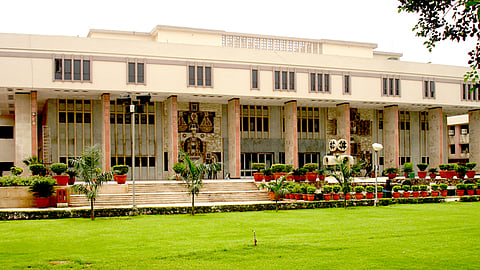When woman makes reasoned choice for sexual relations, consent can't be on misconception: Delhi HC
NEW DELHI: When a woman makes a reasoned choice to establish physical relations, consent cannot be said to be based on a misconception unless there is clear evidence of a false promise of marriage, the Delhi High Court has said.
Justice Anoop Kumar Mendiratta made the observation while quashing a rape case against a man after noting that the matter has been amicably settled between him and the woman and they have now got married to each other.
“It is pertinent to observe that whenever a woman makes a reasoned choice to establish physical relations after fully understanding the consequences of such action, the ‘consent' cannot be said to be based on misconception of fact until and unless there is a clear evidence that a false promise with no intention of upholding the same was given by the maker at the time of making the promise.
“The said promise must be of immediate relevance and bear a direct nexus to a decision by the woman to engage in sexual act,”' the court said.
The woman had lodged a rape case against the man alleging that he repeatedly established physical relations with her on the pretext of marriage but later refused to tie the knot saying that his family has fixed his marriage with someone else.
The court was subsequently informed that the man and the complainant settled their dispute and got married in court.
The complainant told the high court that she has been living happily with the man and did not wish to proceed with the FIR which was registered under "misconception" since the accused was reluctant to marry due to resistance from his family.
“Given the nature of relationship between the petitioner (man) and respondent no.2 (woman), it does not appear that any such alleged promise was in bad faith or to deceive respondent no.2 but for the subsequent developments in the family of the petitioner,” the court said.
It added that while the investigation was in progress, the man voluntarily married the woman and so it cannot be construed that the promise made by him initially was with an intention to not fulfil it.
It cannot be ignored that quashing of proceedings shall result in better harmony in the matrimonial relationship between the parties, rather than continuing with the proceedings under Section 376 (punishment for rape) of the IPC, the court said, adding the chances of conviction after trial were remote and bleak in view of the settlement between the couple.
“Continuation of proceedings would be nothing but an abuse of the process of court and cause prejudice and disruption in harmony between the parties,” the court said.

